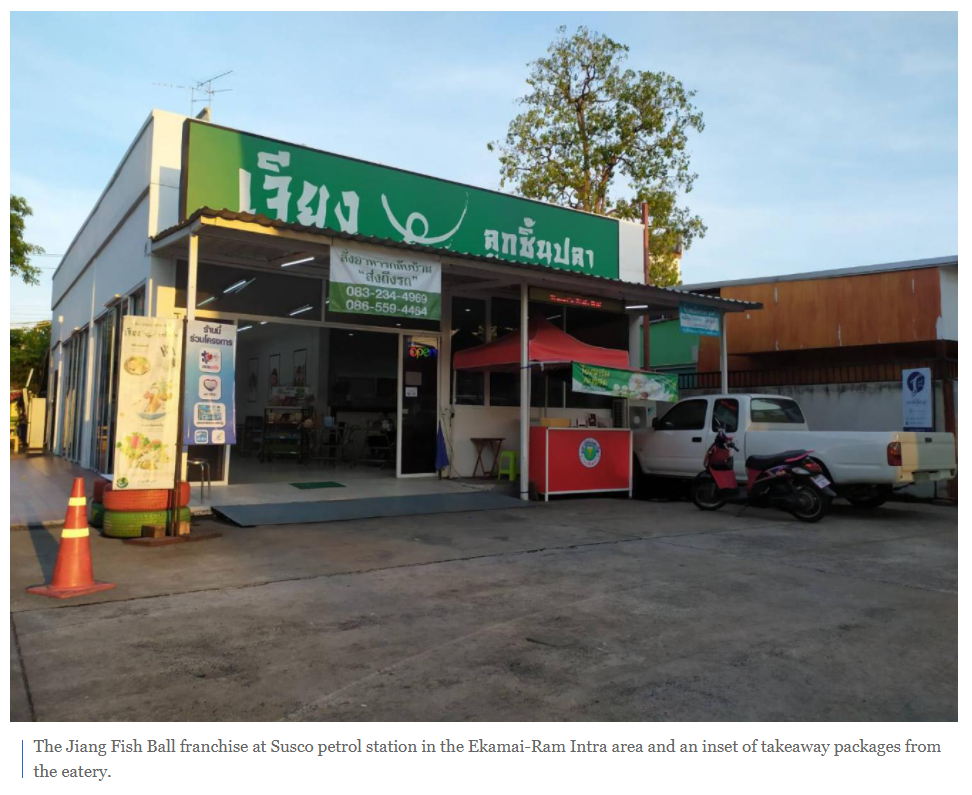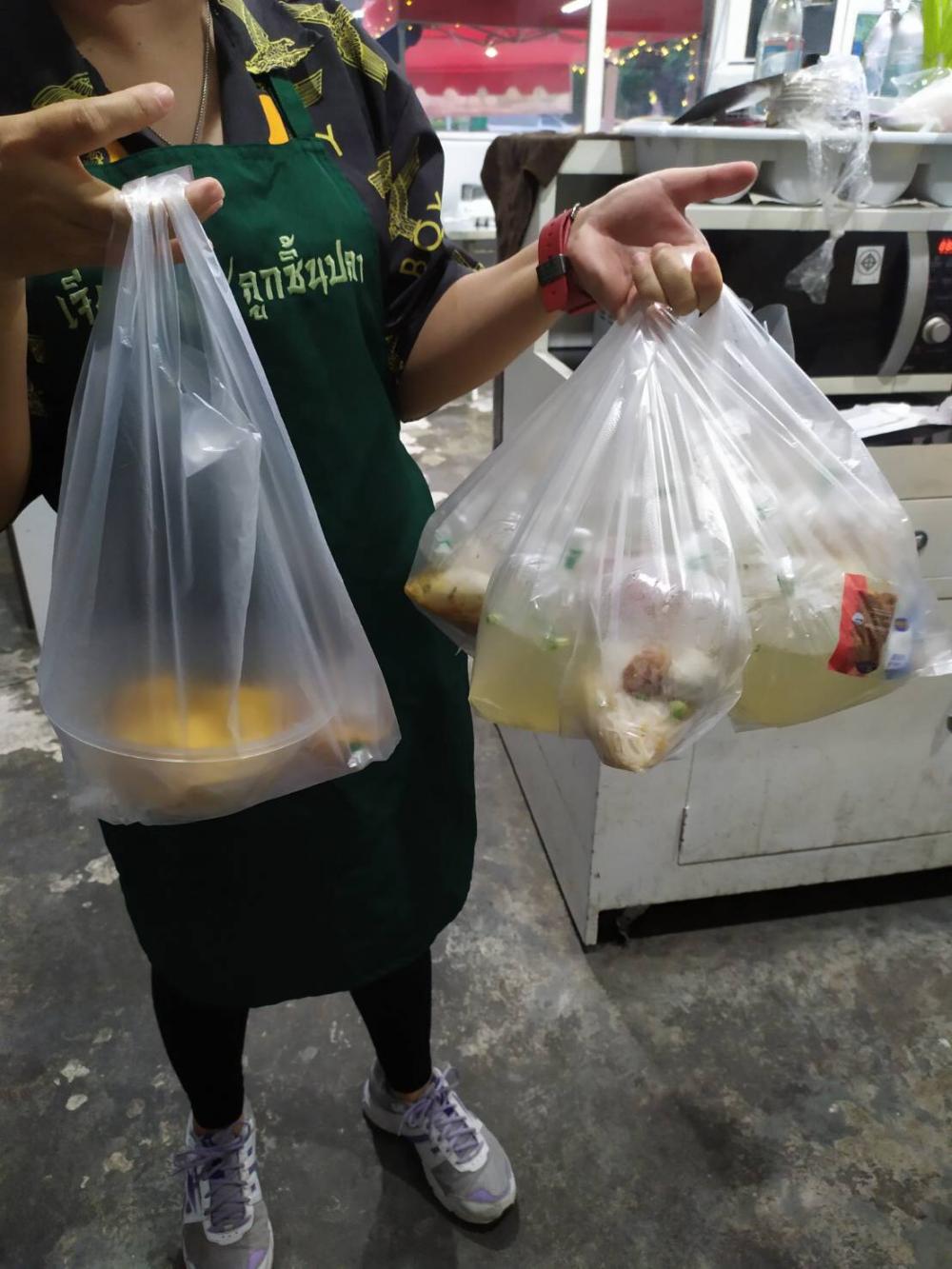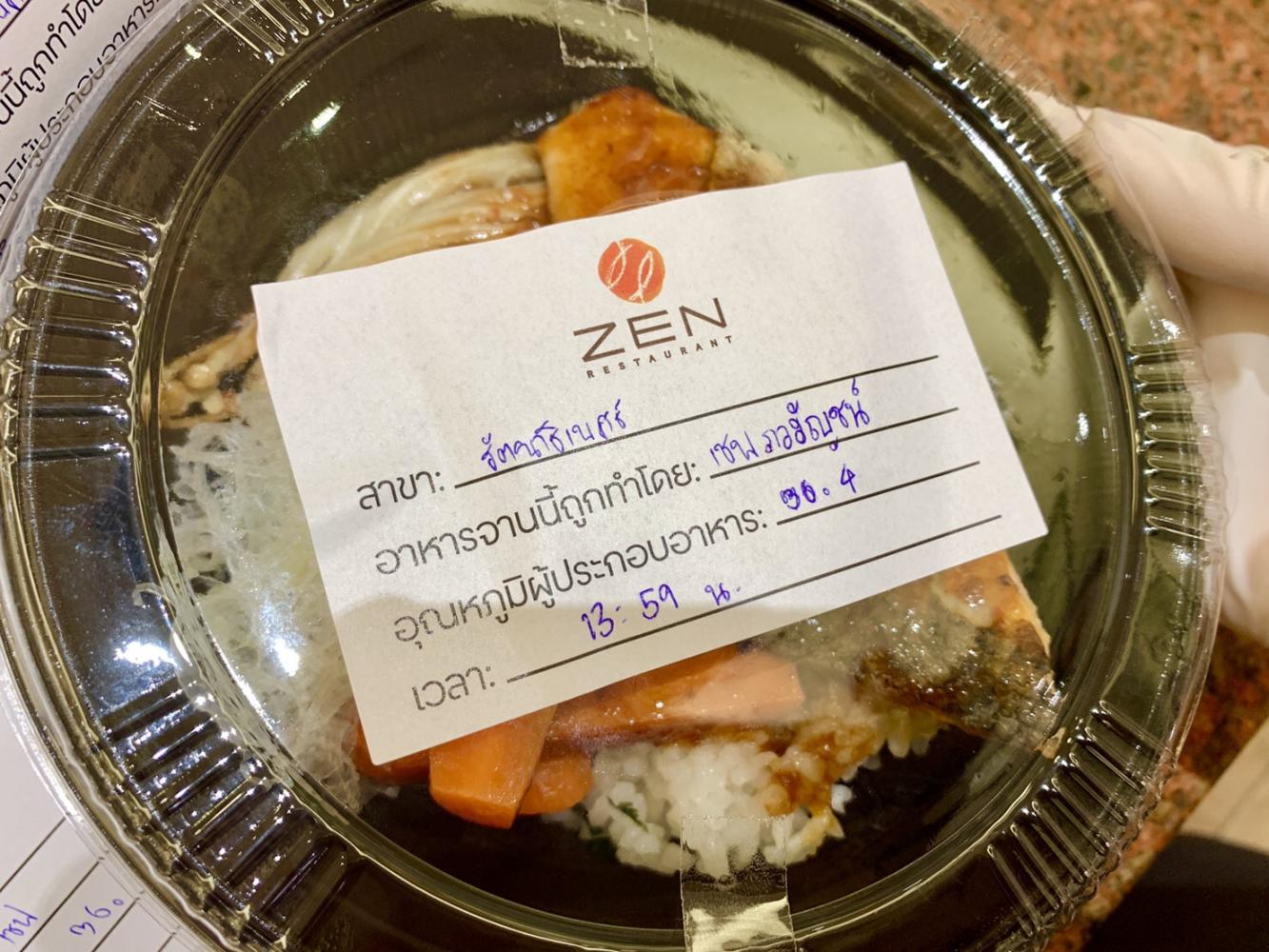Thailand: Restaurateurs hungry for eased rules
The government’s recent ban on dining in at restaurants in major cities and reports of more Covid infections at some high-profile restaurants have sounded the death knell for many eateries.
These factors represent a doubly whammy for small and medium-size family-run eateries, street stalls and food vendors, which rely heavily on foot traffic.
With the third wave of the pandemic and the ban on eating meals on the premises, many customer have lost their appetite for dining out.
Family-run eateries, street food stalls, food vendors and restaurant chains are being forced to make a painful decision on whether to throw in the towel or temporarily close their doors.
But amid the crisis, creative ideas have emerged as restaurateurs struggle to find a niche to stay alive.
Copper International Buffet has fine-tuned its services in an effort to weather the crisis. The restaurant has its drivers wear personal protective equipment (PPE) to deliver food to households throughout Bangkok.
Penguin Eat Shabu has attempted selling durian online, while Pad Thai Thipsamai, better known as Pad Thai Pratu Phi, is preparing to offer frozen meals as a potential new source of income.
Adapt to survive
Kasem Sattayarak, a co-founder of Copper International Buffet, said sales from delivery services recorded a huge drop following reports about the Klong Toey cluster of infections, as many Thai consumers believe food delivery drivers come from the Klong Toey area.
“To regain customer confidence, we immediately decided to order hundreds of PPE uniforms for our drivers to wear when delivering food to customers,” said Mr Kasem.
“As a result, our delivery sales turned around, but they have yet to offset the decline in sales from the ban on dining in at restaurants.”
He said the restaurant plans to have its waiters and waitresses wear PPE uniforms to serve customers once the ban on dining in at restaurants is lifted.
Copper International Buffet prepared three delivery business platforms since the first outbreak of the pandemic and plans to add three more following the third wave.
“Despite being successful with delivery offerings, our business is still running at a loss because 80% stemmed from people dining in our restaurant,” said Mr Kasem.
Boonyong Tansakul, chief executive of Zen Corporation Group Plc, said following the ban on eating in at restaurants, the company created a new programme called “Chef Care by Zen” to increase consumer confidence when ordering its food via delivery.
Under the programme, each food package delivered to customers mentions the name of the chef who cooked the meal.
Details include the name of the chef, his or her temperature, the time he or she cooked the food and the branch where he or she cooked the food.
“Buffet and shabu restaurants have felt the brunt of the ban on dining in because these models are not suitable for delivery,” said Mr Boonyong.
However, he did not become disheartened, instead initiating the ZEN Buffet Take Home & Delivery programme on May 10.
Delivery drivers for Copper International Buffet restaurant spray disinfectant on food containers before leaving the company’s premises, then spray it again upon arrival at the customer’s residence.
New directions
Shortly after the ban on dining in restaurants, Thanapong Vongchinsri, the owner of Penguin Eat Shabu, started selling durian online.
“Our trial effort garnered a good response and now it is not difficult to find durian in the market,” he said.
“We are looking for processed durian products and other easier ways to eat shabu via delivery.”
Taniwan Koonmongkon, the maker of Klongthip boxed rice for delivery, said since the Krystal Club cluster of infections its delivery orders, valued at 70,000-150,000 baht per day, dried up as people shifted from their workplaces to working from home, while seminars were postponed.
“I was shocked. It was like being hit by lightning,” said Mrs Taniwan.
“Our employees have been unemployed for two weeks, so I’ve switched to making Chinese sausages [kun chiang] and am seeking independent distributors, planning to extend the product lines.”
Shuttering outlets
Mr Thanapong from Penguin Eat Shabu said the impact of the third wave has been fiercer than the first two waves.
Customers have little spending power and his restaurant sales have declined by 80%.
“We are small businesses, not big chains. Landlords have yet to offer a helping hand,” he said.
“We can’t continue our operations and are deciding whether to close two more restaurants out of eight total branches soon. After the first wave, we closed two restaurants in Chiang Mai and Silom.”
Similarly, chef Chumpol Jangprai, the owner of R-Haan restaurant and a former Iron Chef and TV celebrity, said he decided to close service for his restaurant until the end of June.
Supamas Kongwiwatanakul, the owner of Glongsaensuk, a Thai and European restaurant in Phan Thong district in Chon Buri, said she made the decision to close her restaurant earlier this month, but still helps her staff in terms of accommodation, food and some payment.
Her employee numbers have gradually decreased from 30 to 10.
Mrs Taniwan from Klongthip rice, who is also president of the Thai Restaurant Association (TRA), said the ban on dining in and continued reports about infections has affected consumer sentiment in not only the six cities where the ban has been enforced, but also other cities.
“Restaurants in Nakhon Phanom, Hat Yai, Nan, Samut Sakhon and Ayutthaya, where there is not a ban, are also becoming isolated, while several food stalls and food vendors in those provinces have already gone out of business,” she said.
Call for easing
Mrs Taniwan said restaurants want the association to petition the government to relax the ban on dining in, as well as prioritise operators of eateries and their employees receiving vaccination.
“The ban has significantly decreased restaurants’ income,” she said.
“It should be relaxed if the pandemic situation improves.”
Mr Thanapong said for small businesses, it is difficult to access funding sources.
“If the government does not help us by the second quarter this year, the situation for the food business will be similar to the hotel business,” he said.
“It is difficult to survive. We want the government to be the intermediary to negotiate and bargain rental fees [a reduction or fee payment extension] with retail operators as well as suspend debt payment.”
Gunanaek Vachiraungsana, the operator of a Jiang Fish Ball franchise at Susco petrol station in the Ekamai-Ram Intra area, said he wants the TRA to be a central body to talk with banks.
He considers banks an upstream source that will eventually lead the landlords to reduce their rental fees.
“We expect our business will last for only three months,” said Mr Gunanaek.
He said his shop considered a delivery service, but it was not worth the investment because of high delivery service costs.
Mrs Supamas, the owner of Glongsaensuk, said the government should allow employees of liquidated restaurants who were members of the Social Security Fund (SSF) for fewer than six months to claim benefits from the fund.
She also urged the government to allow restaurants that are juristic persons to participate in all of the government’s economic stimulus packages.
“In addition to low-income earners, we want the government to look at the restaurant business,” said Mrs Supamas.
“The government should launch a stimulus campaign for the country’s long-term economic development.”


 Thailand
Thailand









